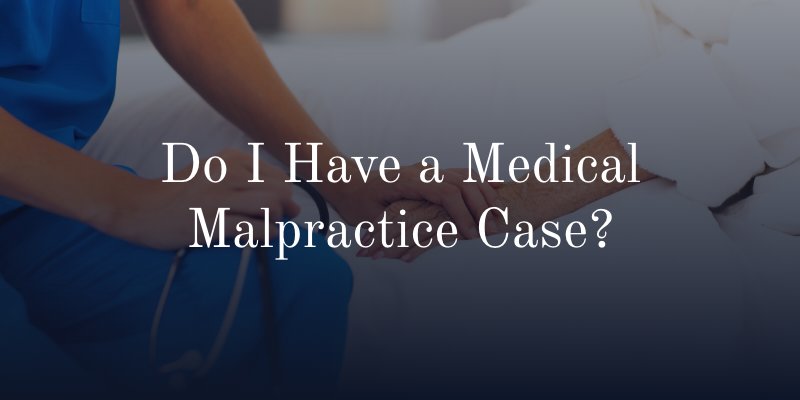How Do I Know If I Have a Medical Malpractice Case?
Determining whether you have a medical malpractice claim can often be complicated due to the complicated legal standards involved. It’s critical to understand what medical malpractice is and some of the rules surrounding these cases so you have a better idea of whether you have a claim.

What Exactly is Medical Malpractice?
Medical malpractice is legally defined as a specific type of professional negligence by a healthcare provider. In order for an act to qualify as medical malpractice, it must be demonstrated there was negligent action (or inaction) from the side of the practitioner or facility.
More precisely, the healthcare provider must have breached a standard of care – meaning their treatment was less attentive or prudent than what other competent medical professionals would offer under similar circumstances:
“”Medical malpractice” means doing that which the reasonably prudent health care provider or health care institution would not do or not doing that which the reasonably prudent health care provider or health care institution would do in the same or similar circumstances.”
One critical element to establish here is that such deviation directly resulted in injury or harm to the patient (or their family members in some cases) for it to qualify as malpractice. Medical malpractice requires proving more than just that the medical professional made a mistake.
Examples of Medical Malpractice Claims
Medical malpractice can manifest in various forms. Here are some common examples:
Misdiagnosis or Delayed Diagnosis: If a doctor fails to properly diagnose your condition and you suffer as a result, it might be grounds for a malpractice claim.
Surgical Errors: These could include mistakes during the operation itself, such as an accidental injury or leaving surgical instruments inside the patient’s body.
Medication Errors: This refers to any negligent practice related to prescription medication—from prescribing the wrong drugs and doses to failure in communicating potential side effects.
Negligence During Childbirth: If improper care before or during childbirth leads to injuries/illnesses in the mother and/or the baby, it may give rise to a medical malpractice claim.
This is not a comprehensive list, so don’t assume that if you haven’t experienced one of the above situations you don’t have a claim; always speak with a professional.
Evidence a Lawyer Can Use To Prove Your Claim
Building a solid medical malpractice case requires compelling evidence. An experienced attorney often uses the following:
Medical Records: These are central to your case, as they document your condition, treatments provided or not provided, and their effects on your life.
Healthcare Provider History: If the provider has a history of similar negligence claims, it may strengthen the argument that they fell below an acceptable standard of care.
Photos of Injuries: Visual evidence clearly depicting the injuries caused by alleged malpractice could make a significant impact during court proceedings or negotiations with insurance companies.
Witness Statements: Testimony from other healthcare professionals or witnesses who observed your treatment can provide crucial support for your claims of deviation from expected standards.
Pharmacy Records: These could offer crucial insight regarding any problematic prescriptions in your case.
Lab Tests: Results could highlight improper diagnoses or potential harm caused by incorrect treatments.
Working with a Charleston medical malpractice lawyer ensures you are able to navigate this complex legal and medical claim effectively while allowing you to put primary attention where it belongs: on your recovery.
Assessing whether you have a medical malpractice case depends on several factors, and navigating these issues can be complicated. A lawyer can help in several ways, including understanding legal language, unpacking medical records, and negotiating compensation with insurance companies. For help with your claim, don’t hesitate to contact us to schedule a free consultation.
